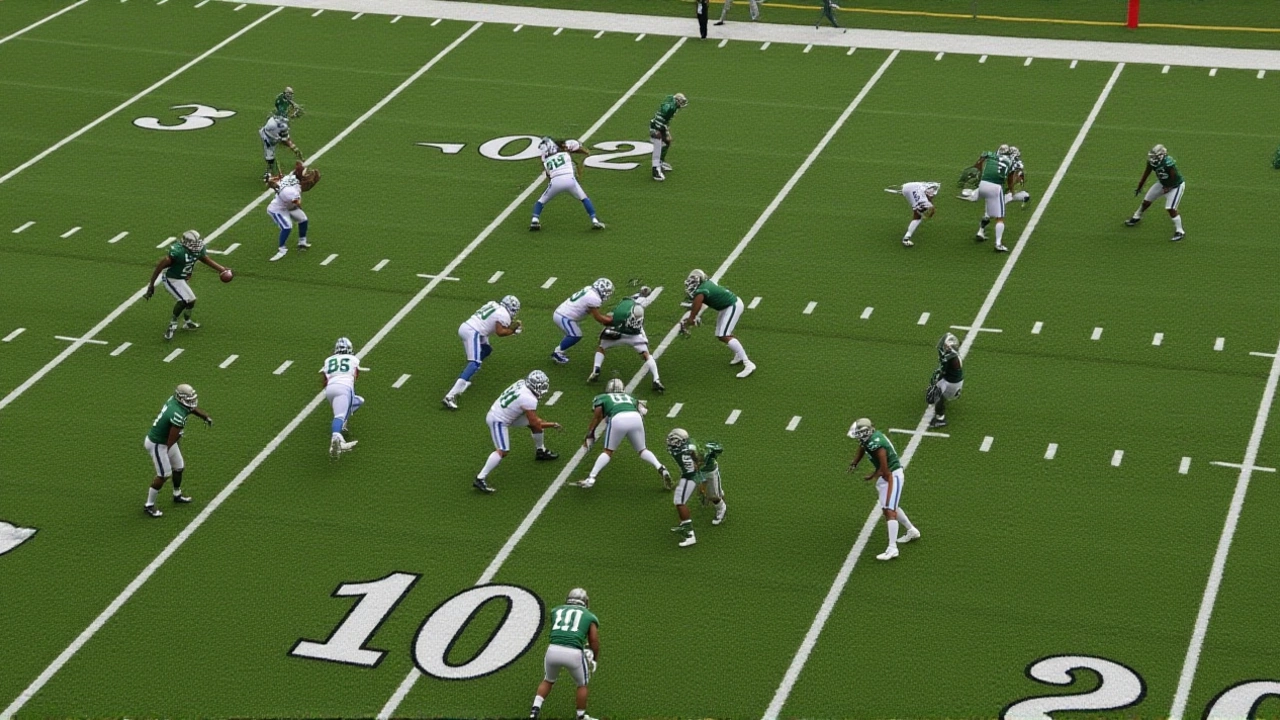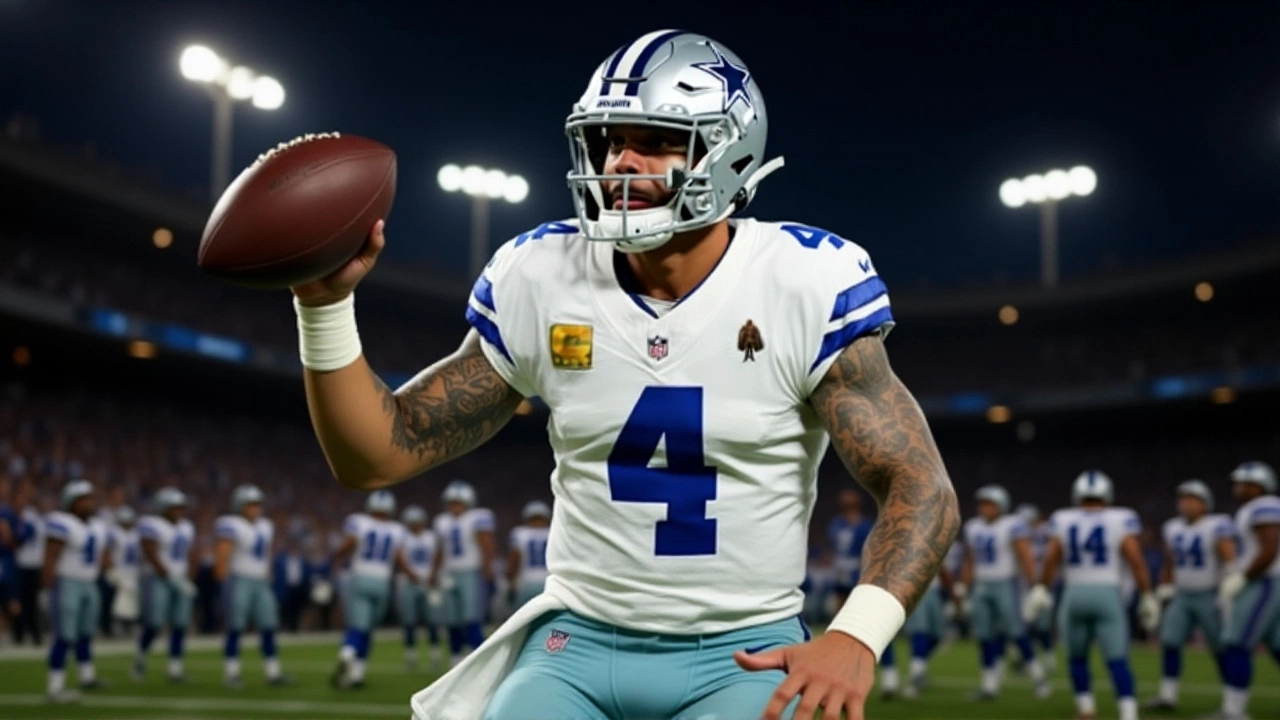The Dallas Cowboys didn’t just win—they rewrote history. On Sunday, November 24, 2024, at AT&T Stadium in Arlington, Texas, the Cowboys erased a 21-0 halftime deficit to stun the Philadelphia Eagles 24-21 in one of the most shocking turnarounds in NFC East history. It wasn’t just a win. It was a statement. And it came against the league’s top-seeded team, the defending NFC champions, who entered the game 8-2 and looking like Super Bowl favorites. Now? They’re 8-3. And the playoff picture just got messy.
The Collapse That No One Saw Coming
At halftime, the Eagles looked unstoppable. Their offense moved like clockwork. Their defense suffocated Dak Prescott and the Cowboys’ passing game. Nicholas Daniel Sirianni, Philadelphia’s head coach since January 24, 2021, had his team playing like champions—until they stopped playing at all.
What happened after the break? Nothing. And everything.
The Eagles’ offense went silent. Three straight three-and-outs. A fumble on a bad snap. A missed field goal. Meanwhile, the Cowboys’ defense—once a liability—woke up. Led by defensive tackle Quinnen Williams, who joined Dallas in 2024 after a trade from the New York Jets, the unit held Philadelphia to zero points in the second half. No touchdowns. No first downs. Just frustration.
The Comeback: 24 Unanswered Points
It started with a 42-yard bomb from Prescott to CeeDee Lamb on third-and-long. Then a 12-play, 78-yard drive capped by a 1-yard touchdown run from Dalvin Cook. Then, a pick-six by linebacker Micah Parsons—his fourth of the season—that turned the stadium into a screaming cauldron.
By the end of the third quarter, it was 21-14. By the start of the fourth, 21-21. And then, with 2:17 left, Brandon Aubrey, Dallas’s rookie kicker, nailed a 53-yard field goal through the frigid Texas air. The crowd erupted. The Eagles’ sideline went quiet.
“They probably should have lost,” said Peter Prisco, CBS Sports columnist since 1998, during the post-game analysis. “But the most out at Dallas opportunistic defense… that’s what won it.”
Why This Loss Hurts More Than It Looks
The Eagles weren’t just beaten—they were exposed. Their conservative play-calling, criticized all season, reached its peak in the second half. With a 21-point lead, Sirianni opted for run-heavy, clock-killing drives instead of attacking. The result? Fatigue. Momentum loss. And a defense that hadn’t faced a real test all season.
“Dallas and hope they keep the in a game. And Philly does not,” noted Logan Thomas Ryan, former NFL cornerback and CBS analyst, in a clip from their YouTube broadcast. The irony? Ryan’s old team, the New England Patriots, used to do this to playoff teams. Now, it was happening to his former rivals.
For the Eagles, this loss isn’t just about record. It’s about perception. They were supposed to be the AFC’s mirror image: dominant, composed, inevitable. Now, they’re just another team with a shaky finish.
The Cowboys’ Resurrection
Before this game, Dallas was 4-5-1. Their playoff odds were at 14%. Now? They’re 5-5-1. And they’ve got life.
Quinnen Williams didn’t just lead the defense—he transformed it. In his first eight games with Dallas, he recorded 5.5 sacks and 14 quarterback hits. Against the Eagles, he disrupted the interior like a man possessed. The Cowboys’ defensive line, once among the league’s worst, now ranks in the top 10 in pressure rate since Week 9.
And it’s not just Williams. Prescott, playing through a lingering ankle injury, threw for 298 yards and two touchdowns without an interception. Lamb had 11 catches for 149 yards. Cook, the veteran back acquired midseason, rushed for 92 yards and the game-winning touchdown.
This wasn’t luck. It was execution. And it came against the team that beat them 31-28 in Week 1.

The Rivalry That Won’t Die
The Cowboys and Eagles have been at war since 1960. The games are physical. Emotional. Sometimes ugly. This one? It was epic.
It’s the kind of game that defines franchises. For Philadelphia, it’s a wake-up call. For Dallas, it’s a turning point.
They’ll meet again on January 5, 2025, at Lincoln Financial Field in Philadelphia—the final game of the regular season. That one might decide who gets the NFC East crown. Or worse—for the Eagles—it might decide whether they even host a playoff game.
What’s Next?
The Eagles face the Washington Commanders next week. Win, and they stay alive. Lose, and the door cracks open for the New York Giants and Tampa Bay Buccaneers. The Cowboys, meanwhile, host the Atlanta Falcons—a team they should beat. But in 2024, nothing’s guaranteed.
One thing’s clear: The NFC East is no longer a formality. It’s a bloodbath.
Frequently Asked Questions
How did the Cowboys manage such a massive comeback after being down 21-0?
The Cowboys’ turnaround came from a combination of defensive adjustments and offensive execution. After halftime, defensive coordinator Dan Quinn shifted to a more aggressive blitz package, forcing three turnovers. Dak Prescott, who struggled early, found rhythm with quick slants and play-action passes. The offense scored 24 unanswered points, including a pick-six by Micah Parsons and a 53-yard field goal by Brandon Aubrey in the final minutes.
What impact does this loss have on the Eagles’ playoff chances?
The Eagles’ 8-3 record still keeps them in contention, but their path to the NFC’s No. 1 seed is now narrow. They trail the Green Bay Packers and San Francisco 49ers in the conference standings. A loss next week to Washington could drop them to the No. 4 seed, forcing a road game in the wild-card round. Their Week 18 rematch with Dallas could decide their entire postseason fate.
Is Quinnen Williams the reason the Cowboys’ defense improved?
Absolutely. Signed in August 2024, Williams brought elite interior pass-rushing ability the Cowboys lacked. His 5.5 sacks and 14 quarterback hits in eight games transformed their line from a liability to a strength. In this game, he consistently collapsed the pocket, forcing Jalen Hurts into hurried throws. Analysts credit him as the catalyst for the unit’s rise from 28th to 10th in pressure rate since Week 9.
Why was Nick Sirianni criticized for his coaching decisions?
With a 21-point lead, Sirianni chose conservative play-calling over attacking. He ran the ball on 16 of 20 second-half plays, even on third-and-long. The Eagles’ offense went three-and-out three times. Meanwhile, the Cowboys’ defense, which had been gashed for 300+ yards in the first half, adjusted and shut them down. Critics say Sirianni treated the game like a lead to protect—not a game to dominate.
When is the next Cowboys-Eagles matchup, and why does it matter?
They’ll meet again on January 5, 2025, at Lincoln Financial Field in Philadelphia—the final game of the regular season. With both teams likely fighting for playoff positioning, this game could determine the NFC East champion. A Cowboys win would clinch the division. An Eagles win might save their top-seed hopes. It’s the ultimate revenge game—and the most important matchup of the season.
How does this game rank in NFC East history?
It’s one of the largest comebacks in the rivalry’s 64-year history. The 21-point deficit erased by Dallas ties the largest comeback by the Cowboys against the Eagles, matching their 1987 win at Veterans Stadium. Only three times in NFL history has a team overcome a 21-point halftime deficit to win—this was the first since 2020. For fans of the rivalry, it’s already legendary.




